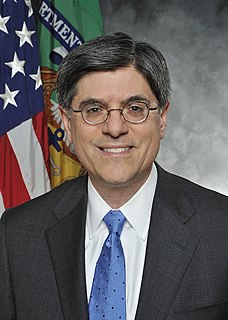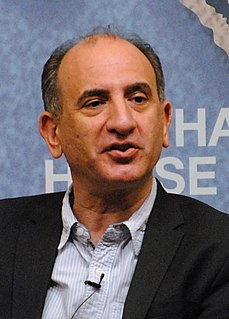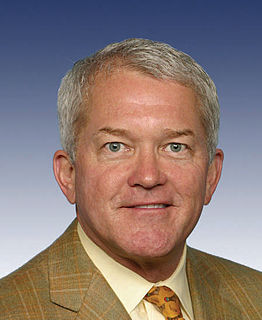A Quote by Gerald R. Ford
It's discouraging how hard it is for a President to slice away large chunks of a $305 billion budget.
Related Quotes
This is the first time a newly inaugurated president has had any impact on a current budget." What that means is that normally when a president's inaugurated in January, the budget for the first calendar year of his term or the first nine months is already done. So from January 21st all the way 'til October when the new budget's done, the president has to deal with the previous Congress' budget and has nothing to say about it. What they're saying is that Donald Trump has had a record-breaking, never-before-seen thing by having an impact on the budget in his first year.
I said we are going to balance an $11 billion budget deficit in a $29 billion budget, so by percentage, the largest budget deficit in America, by percentage, larger than California, larger than New York, larger than Illinois. And we're going to balance that without raising taxes on the people of the state of New Jersey.
In the budget, the president will call for a five-year freeze on discretionary spending other than for national security. This will reduce the deficit by more than $400 billion over the next decade and bring this category of spending to the lowest share of our economy since Dwight Eisenhower was president.
It looks like President Donald Trump is caving on his demand for a measly $1 billion in the budget for his wall on the border with Mexico. The Democrats are threatening a government shutdown. It's the same old same old, and I was hoping that Trump would throw this shutdown thing right back in their face. If they get away with it once, they're just going to keep using it.
How is it possible that a process can be democratic when it comes by way of money? If there is money then it can be elected a senator, it can be elected a representative. Do you know how much it cost to be elected president of the United States? The amount has reached, billions of dollars, 2 billion, 3 billion, 4 billion dollars, that's how much a presidential campaign costs. How much does a senatorial campaign cost? It costs 80 to 90 million dollars; or the campaign of a representative, 40 to 50 million. Is that really a democracy?
I never said it. Honest. Oh, I said there are maybe 100 billion galaxies and 10 billion trillion stars. It's hard to talk about the Cosmos without using big numbers. I said "billion" many times on the Cosmos television series, which was seen by a great many people. But I never said "billions and billions." For one thing, it's too imprecise. How many billions are "billions and billions"? A few billion? Twenty billion? A hundred billion? "Billions and billions" is pretty vague. When we reconfigured and updated the series, I checked-and sure enough, I never said it.
When my husband was president, we went from a $300 billion deficit to a $200 billion surplus and we were actually on the path to eliminating the national debt. When President Obama came into office, he inherited the worst economic disaster since the Great Depression. He has cut the deficit by two-thirds.
The collective shortfall of the 3.08 billion people (47 percent of world population) who, in 2005, lived below $2.50 per day was $507 billion per annum, which indeed comes to about two-thirds of the present US military budget. This gives us a rough sense of how much the eradication of poverty would cost.
































